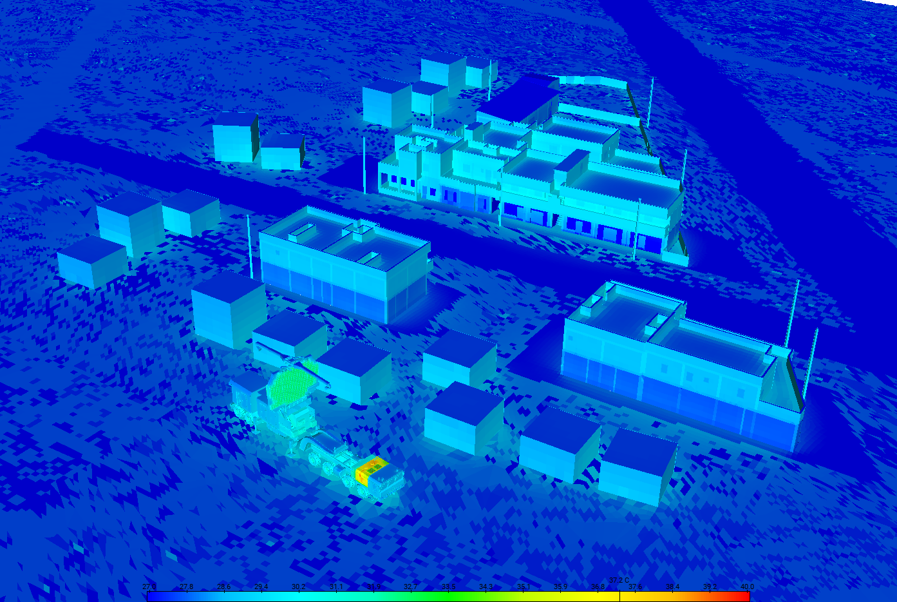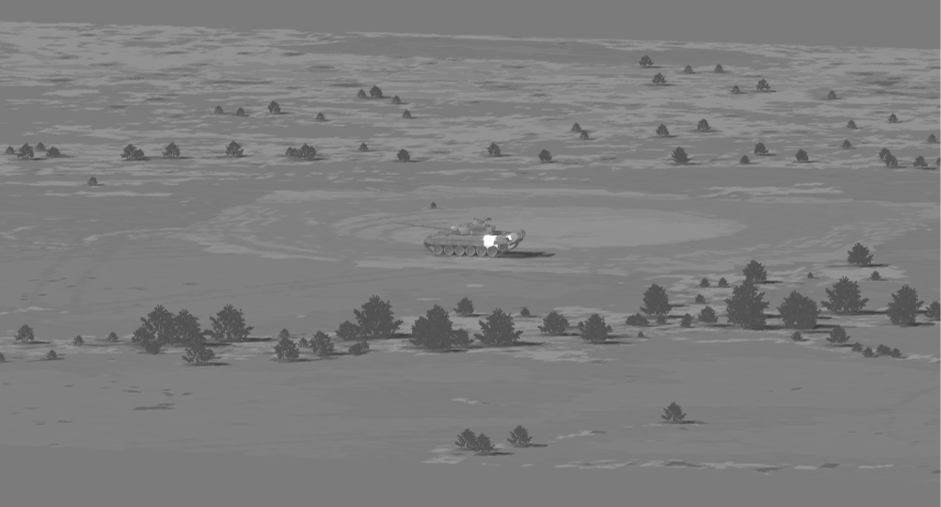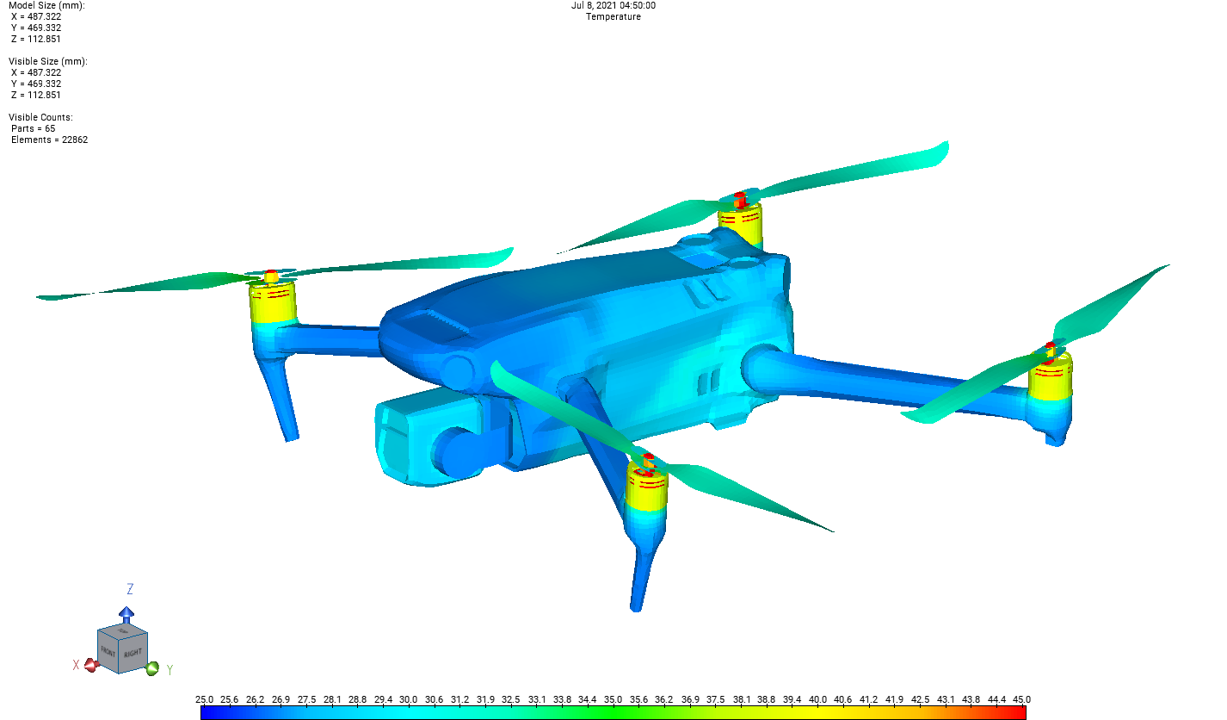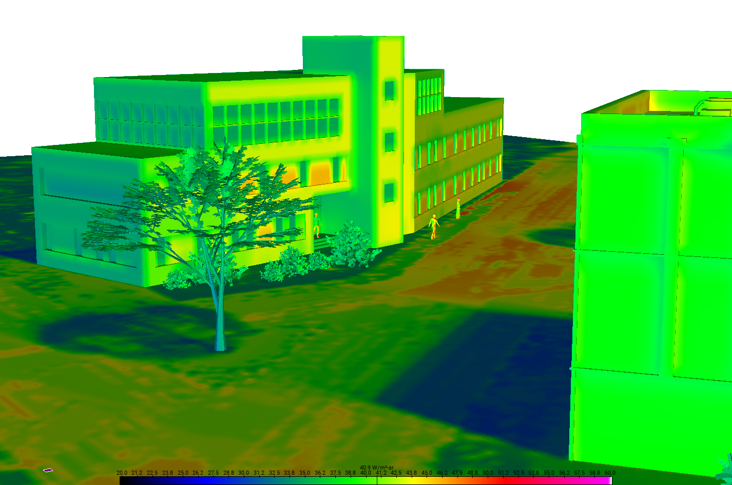OPIR Surveillance: Synthetic IR Imagery and Deep Learning for Overhead Target Detection
Thursday, February 5, 2026 | 9:00 - 10:00 AM ET

Join us for an in-depth webinar on the technical challenges of Overhead Persistent Infrared (OPIR) surveillance and how synthetic imagery is enhancing deep learning performance for detecting ground-based targets from space-based platforms.
OPIR sensors aboard satellites offer powerful capabilities for Earth observation in the thermal infrared spectrum (MWIR and LWIR), but challenges like atmospheric interference and limited image resolution make it difficult to detect, differentiate, and identify ground targets with confidence. This session explores how synthetic EO/IR datasets—generated using MuSES and CoTherm—can supplement real-world data to improve training for machine learning algorithms in these demanding conditions.
We’ll present a case study using YOLO (“You Only Look Once”) deep learning models trained on synthetic datasets of adversarial ground vehicles across varying weather conditions, times of day, and operational states. The webinar will emphasize how image resolution impacts detection and recognition performance, offering insights into how future high-resolution space sensors might enhance OPIR effectiveness.
What You’ll Learn:
- Challenges in OPIR surveillance and data acquisition in the IR spectrum
- How synthetic data generation supports robust training for ML algorithms
- Use of MuSES and CoTherm to simulate realistic thermal IR overhead imagery
- Impact of image resolution on YOLO algorithm performance
- Implications for future space-based sensor system design
Who Should Attend:
Professionals and researchers in remote sensing, aerospace defense, EO/IR imaging, and AI/ML applications in surveillance.
Explore how simulation, AI, and next-generation sensing platforms intersect to shape the future of global overhead surveillance.
Presenter
Mark Klein
Senior Thermal and EO/IR Analyst
 | Mark Klein is a Senior Engineer at ThermoAnalytics, Inc., where he leads the thermal and infrared testing group and specializes in the development, analysis, and validation of CFD, thermal, and EO/IR signature models. With over 19 years of experience, Mark has worked extensively on modeling military vehicles, humans, and camouflage nets. He has led numerous successful field tests to validate physics-based simulations. His expertise supports high-fidelity synthetic IR scene generation, essential for overhead target detection and AI/ML applications. Mark holds both a B.S. and M.S. in Mechanical Engineering from Michigan Technological University. |
Register for the Webinar
Other Webinars in this Series
An Introduction to MuSES and Scene Simulation for AI/ML Applications Webinar

Thursday, August 21, 2025 | 9:00-10:00 AM EDT
Join us for an insightful webinar exploring the cutting-edge scene simulation capabilities of MuSES (Multi-Service Electro-Optic Signature) and the transformative potential of AI/ML for defense applications.
Enhancing UAV Detection in Thermal Infrared with Synthetic Data and Deep Learning Webinar

Thursday, September 4, 2025 | 9:00-10:00 AM EDT
Join us for a technical webinar exploring how synthetic thermal infrared imagery can dramatically improve deep learning performance for detecting and recognizing unmanned aerial vehicles (UAVs).
Unlock Advanced Human Detection with Multimodal Remote Sensing & Thermal Modeling in MuSES Webinar

Thursday, October 9, 2025 | 9:00-10:00 AM EDT
Join us for an exclusive webinar exploring the cutting-edge integration of multimodal remote sensing data and human thermal modeling within MuSES — the premier simulation environment for realistic battlefield and security scenarios within the infrared (IR) spectrum.